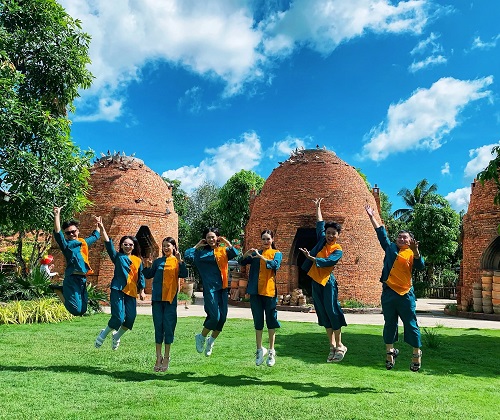
The workshop had the attendance of Mr. Pham Van Thuy, Deputy Director of the Vietnam National Administration of Tourism; Mr. Vu The Binh, Chairman of the Vietnam Tourism Association; and Mr. Duong Tan Hien, Permanent Vice Chairman of Can Tho City People's Committee, representatives from the Departments of Culture, Sports and Tourism, training schools, travel agencies and businesses of 13 provinces and cities in the Mekong Delta.
The workshop aims to gather input from the Mekong Delta's scientists, managers, experts, and businesses. The goal is to assess human resources and law enforcement issues in the Mekong Delta's tourism sector. Then, proposing solutions for developing high-quality human resources and enhancing legal knowledge related to tourism. These solutions will ensure effective, sustainable, and legally compliant tourism development in the Mekong Delta.
According to statistics from the Institute for Tourism Development Research, Vietnam currently has more than 1.3 million workers in the tourism sector, with 42% professionally trained. There are about 150,000 tourism workers in the Mekong Delta, with up to 51% being untrained. This situation shows that the human resources of the tourism sector in the Mekong Delta have not met the market needs. At the workshop, delegates proposed solutions to change and improve the quality of tourism human resources in the Mekong Delta. These solutions focus on several key areas: building a human resources strategy for the Mekong Delta’s tourism sector; improving the quality of output standards; strengthening linkages between training institutions and businesses; focusing on international training links; building mechanisms and policies for training high-quality human resources; and developing digital tourism human resources.
Concerning the current state of law enforcement on tourism activities in the Mekong Delta, delegates have highlighted several issues. They mentioned that state tourism management is not closely monitored, appropriate sanctions lack deterrent effect, and inspection and examination work is irregular. Furthermore, the legal framework for agricultural and rural tourism is still limited. Therefore, there is a need to enhance the dissemination of the Law on Tourism, effectively implement it, and establish a solid legal basis for agricultural and rural tourism.
On this occasion, the Mekong Delta Tourism Association has awarded the decision and certificate of recognition of Typical Tourist Destinations of the Mekong Delta in 2024 to 6 tourist areas and spots in Can Tho City, Ben Tre, Tien Giang, An Giang, Tra Vinh, and Bac Lieu.
Hoang Dat





